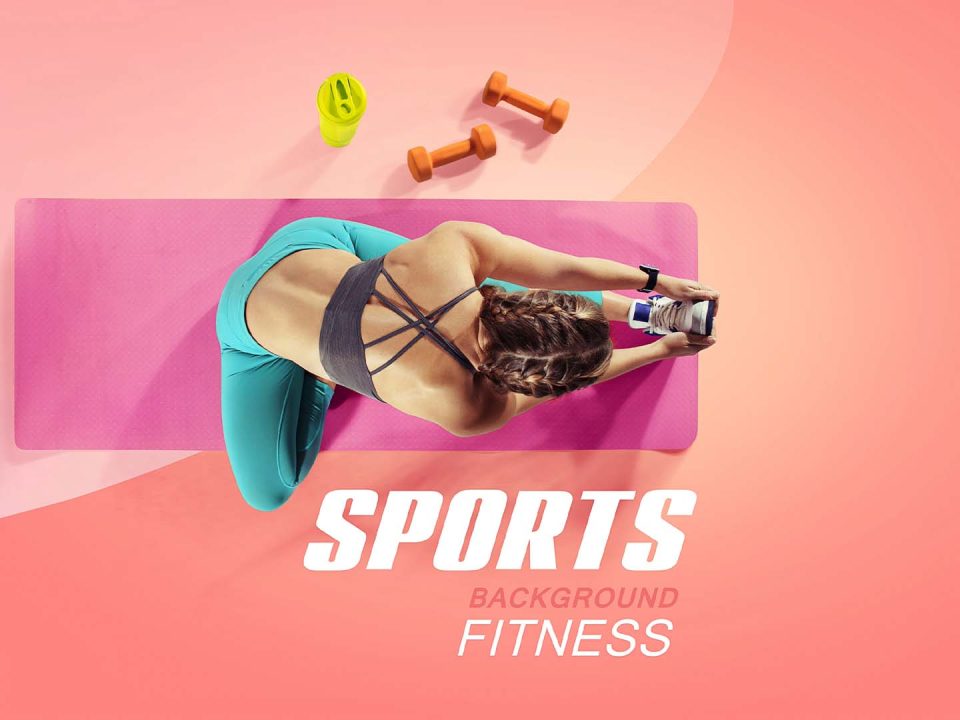Table of contents
- Setting Realistic Expectations
- Measuring Progress: Key Fitness Indicators
- Strength Training for Novices
- Overcoming Gym Anxiety
- Creating a Sustainable Fitness Routine
- The Role of Nutrition in Fitness Success
- Leveraging Technology for Fitness Tracking
- Building a Support System
- Future Trends in Beginner Fitness
Starting a fitness journey can be tough. Many people jump in with enthusiasm, but staying committed is the real challenge. Studies show that 40-65% of new gym members drop out within 5-8 months. Why? Lack of time is a big reason, with 40% of people citing it as their main obstacle.
But that's not all. Unrealistic goals and slow progress can quickly dampen motivation. Imagine working hard for weeks and not seeing the results you expected. It's disheartening, right? This is why setting achievable goals is crucial for long-term success.
Gym intimidation is another hurdle. Walking into a crowded gym can feel overwhelming, especially if you're new to fitness. You might worry about using equipment wrong or feel self-conscious around more experienced gym-goers. This discomfort can be a significant barrier to sticking with your fitness plan.
Other factors like lack of social support, family responsibilities, and transportation issues can also make it hard to stay consistent. But don't worry – understanding these challenges is the first step to overcoming them. Remember, every fitness pro was once a beginner too!
Setting Realistic Expectations
Starting your fitness journey can be exciting, but it's crucial to set realistic expectations. Aim for 150 minutes of moderate exercise or 75 minutes of vigorous activity each week. This might sound like a lot, but don't worry! You can break it down into manageable chunks.
Start with just 30 minutes a day, five days a week. Remember, it's okay to start small. In fact, it's better to leave your workout feeling like you could do more rather than feeling completely drained. This approach helps you stick to your routine in the long run.
As you progress, gradually increase your workout duration and intensity. This slow and steady approach prevents burnout and reduces the risk of injury. It's not about pushing yourself to the limit every time. Instead, focus on consistency and gradual improvement.
Listen to your body and adjust as needed. Some days you might feel energized and ready for more, while other days you might need to take it easy. That's perfectly normal! The key is to keep showing up and doing what you can.
Remember, fitness is a journey, not a race. Celebrate small victories along the way. Whether it's doing one more rep or exercising for an extra minute, every bit of progress counts. Stay patient and persistent, and you'll be amazed at how far you can go!
Measuring Progress: Key Fitness Indicators
Tracking your fitness journey is crucial for staying motivated and seeing results. Let's explore the key areas to measure and simple ways to track your progress.
Aerobic fitness is a top priority. Try timing yourself for a 1.5-mile run or jog. As you get fitter, you'll complete the distance faster. This simple test gives you a clear picture of your cardiovascular health.
Muscular strength is another vital indicator. Count how many pushups you can do in one go. Can't do a full pushup yet? No worries! Start with knee pushups and work your way up. Remember, progress is progress, no matter how small.
Don't forget about your Body Mass Index (BMI). While it's not perfect, it's an easy way to track changes in your body composition. A healthy BMI range is between 18.5 and 24.9. But don't get too hung up on the numbers – how you feel matters most!
Your heart rate tells a lot about your fitness level. Measure your resting heart rate first thing in the morning. A lower resting heart rate often indicates better cardiovascular fitness. Aim to check it once a week and watch for improvements over time.
Starting with baseline measurements is key. They give you a clear starting point and help you set realistic goals. Don't be discouraged if your initial numbers aren't where you want them to be. Everyone starts somewhere!
Remember, fitness is a journey, not a destination. Celebrate every bit of progress, no matter how small. You've got this!
Strength Training for Novices
Starting your strength training journey can be exciting and a bit daunting. Don't worry, we've got your back! The key is to start small and build up gradually. Begin with lighter weights to master proper form. This approach reduces injury risk and sets a solid foundation for future gains.
Focus on compound exercises that work multiple muscle groups. These include squats, deadlifts, and bench presses. Start with bodyweight versions or light dumbbells. As you gain confidence, slowly increase the weight. Remember, consistency trumps intensity when you're just starting out.
Proper form is crucial. It's better to lift less weight correctly than to struggle with heavy loads using poor technique. Consider working with a trainer initially to learn correct posture and movement patterns. This investment can pay off in faster progress and fewer setbacks.
Listen to your body. Some muscle soreness is normal, but pain isn't. Give yourself adequate rest between workouts to recover and grow stronger. Aim for 2-3 strength training sessions per week, allowing at least a day of rest between each.
Progress at your own pace. Everyone's fitness journey is unique. Celebrate small victories and focus on how you feel, not just the numbers on the weights. With patience and persistence, you'll be amazed at how quickly your strength improves!
Overcoming Gym Anxiety
Feeling nervous about hitting the gym? You're not alone! Many beginners feel intimidated by crowded fitness centers. But don't let that stop you from reaching your goals. Let's tackle this challenge head-on!
Start by visiting the gym during off-peak hours. Early mornings or late evenings are usually less busy. This gives you space to explore equipment without feeling rushed. Plus, you'll have more time to ask staff for help if needed.
Bring a friend along for moral support. Having a workout buddy can boost your confidence and make the experience more fun. You'll feel less self-conscious when you're not alone.
Consider joining a beginner's class. Group fitness sessions are great for newbies. The instructor will guide you through exercises, and you'll be surrounded by others at a similar fitness level. It's a perfect way to learn proper form and meet like-minded people.
Remember, everyone started somewhere. Even the fittest gym-goers were once beginners. Focus on your own journey and progress, not on comparing yourself to others.
If traditional gyms still feel overwhelming, explore alternatives. Home workouts, outdoor activities, or smaller boutique studios might be more your style. The key is finding an environment where you feel comfortable and motivated.
Lastly, prepare yourself mentally. Remind yourself of your fitness goals before each workout. Positive self-talk can work wonders in boosting your confidence. You've got this!
Creating a Sustainable Fitness Routine
Starting a fitness journey is exciting, but keeping it going is the real challenge. Let's make your routine stick! First, find activities you truly enjoy. Love dancing? Try Zumba classes. Prefer the outdoors? Go for hikes or bike rides. The key is to have fun while getting fit.
Mix things up to keep boredom at bay. Alternate between strength training, cardio, and flexibility work. This variety not only prevents monotony but also ensures a well-rounded fitness approach. Remember, your body thrives on different challenges.
Set small, achievable goals to keep yourself motivated. Maybe it's doing 10 push-ups or walking for 20 minutes without stopping. Celebrate these wins! They're stepping stones to bigger achievements. As you progress, gradually increase the difficulty of your goals.
Consistency is crucial, but don't be too hard on yourself. Missed a workout? No problem. Just get back on track the next day. It's about progress, not perfection. Listen to your body and adjust your routine as needed.
Lastly, make your fitness routine fit your life, not the other way around. If mornings are hectic, try evening workouts. Can't make it to the gym? Home workouts are just as effective. The best routine is one you can stick to long-term.
Remember, creating a sustainable fitness routine is a journey. Be patient with yourself and enjoy the process. You've got this!
The Role of Nutrition in Fitness Success
Eating right is just as important as working out when you're starting your fitness journey. A balanced diet fuels your body and helps you reach your goals faster. Focus on eating plenty of fruits, vegetables, lean proteins, and whole grains. These foods give you the energy you need to power through your workouts.
Don't forget to drink water! Staying hydrated is crucial for your exercise performance. Aim for at least 8 glasses a day, and more when you're sweating it out at the gym. Water helps regulate your body temperature and keeps your muscles working smoothly.
Watch out for common nutrition pitfalls. Many beginners make the mistake of drastically cutting calories, which can leave you feeling tired and cranky. Instead, make small, sustainable changes to your diet. Another common error is relying too heavily on protein shakes or energy bars. While these can be convenient, they shouldn't replace whole foods in your diet.
Remember, nutrition isn't about perfection. It's about making better choices most of the time. Start by adding more colorful veggies to your plate or swapping sugary drinks for water. Small changes add up to big results over time!
Leveraging Technology for Fitness Tracking
Fitness apps and wearables are game-changers for beginners. These tools make tracking your progress a breeze. Popular options like Fitbit, Apple Watch, and smartphone apps offer easy ways to monitor your steps, heart rate, and calories burned. They're like having a personal coach right on your wrist!
Digital tracking boosts motivation and keeps you accountable. Seeing your daily progress can be a real confidence booster. It's exciting to watch your stats improve over time. Plus, many apps offer challenges and rewards to keep you engaged. It's like turning your fitness journey into a fun game!
But remember, technology is a tool, not a replacement for effort. Don't get too caught up in the numbers. Focus on how you feel and your overall progress. Sometimes, it's good to unplug and just enjoy your workout. Listen to your body and trust your instincts.
Smart use of fitness tech can supercharge your journey. It helps you set realistic goals and track your improvements. Just remember to use it as a helpful guide, not a strict rulebook. Your fitness journey is unique, and technology should support, not dictate, your path to better health.
Building a Support System
Starting a fitness journey can be tough, but you don't have to go it alone. Having a strong support system can make all the difference in sticking to your goals. Find a workout buddy who shares your fitness aspirations. They'll keep you accountable and make exercising more fun. Can't find someone locally? No worries! Join online fitness communities where you can connect with like-minded individuals. These groups offer encouragement, tips, and motivation when you need it most.
Consider working with a personal trainer or coach, especially if you're new to exercise. They'll create a tailored plan that fits your needs and helps you avoid common beginner mistakes. A trainer can also boost your confidence by teaching proper form and technique. Remember, investing in professional guidance early on can set you up for long-term success.
Don't underestimate the power of family and friends in your fitness journey. Share your goals with them and ask for their support. Maybe they'll join you for a weekend hike or cheer you on during a virtual race. Having cheerleaders in your corner can make those tough workout days much easier to tackle.
Future Trends in Beginner Fitness
The fitness world is evolving rapidly, making it easier than ever for beginners to start their journey. Virtual reality workouts are gaining popularity, offering immersive experiences that make exercise feel like play. These interactive sessions can help newcomers stay motivated and engaged. Artificial intelligence is also making waves, with personalized workout plans tailored to individual needs and progress.
Mental health is becoming a crucial focus in fitness programs. Many gyms and apps now offer mindfulness sessions alongside traditional workouts. This holistic approach helps beginners manage stress and build resilience. Wearable technology is advancing too, providing more accurate data on sleep, recovery, and overall health. This information empowers beginners to make informed decisions about their fitness routines.
The future of beginner fitness looks bright with the rise of hybrid gym models. These combine in-person and online classes, giving newcomers flexibility in their workout schedules. Personalized nutrition plans based on genetic testing are also on the horizon. This tailored approach could help beginners optimize their diets for better fitness results.






